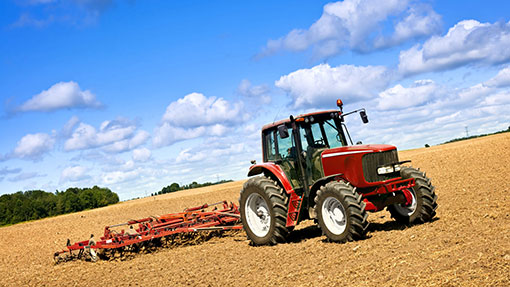Cereals 2014: What qualities mark out a ‘progressive’ farmer?

Progressive farmers make up less than 10% of the total farmer population, according to analysis by the National Farm Research Unit (NFRU).
Jim Williams, NFRU director, said the organisation had created an algorithm for progressiveness based on five key metrics designed to demonstrate managerial capability, farming competence and high lifetime value.
The definition of progressive farmer used was one “who was fit and able to move their farming business into the future”.
Speaking at Cereals 2014, Mr Williams said the five measurements used to decide whether a farm was progressive or not was:
- History of investment in fixed capital
- Farms with a proven experience of expansion
- Businesses with a disposition to innovation thorough their response to technology
- Productivity measured as output per man employed and also relating to total income from farming per acre
- Market focus – meaning an awareness of the end market and a positive attitude to communicating about farming in the wider farming community
Mr Williams said out of 86,710 farmer decision makers with 20ha or more crops and grass there were 6,990 who were “progressive”.
NFRU then undertook a series of in-depth farm interviews with a sample to see if they shared common traits.
Read more: What secrets do successful farm businesses share?
“What marked them out was optimism – it was the overriding thing they all shared. All our progressive farmers were opportunistic optimists.”
Mr Williams said progressive farmers were not necessarily big and the age range was massive. The oldest progressive farmer on the list was well into his 70s.
But traits they shared were:
- Most of them were not wanting to buy land – they preferred to enter into alternative arrangements like share farming in order to achieve expansion
- Many of them saw the single farm payment as a barrier to their business, as they felt it kept the operating costs of farming artificially high
- They were very open to new ideas and were information hungry
- They were big planners and budgeters and often explored “what if scenarios”, including what they would do if SFP was removed.
- Strong communicators and tended to be leaders in their community and not just in farming.
Mr Williams said the number of progressive farmers would increase over time, but SFP would need to go before there was any significant change as this would result in a freeing-up of land use.
“Subsidy is like heroin. It allows people to exists in a dream world and make less than business-like decisions,” he said.
Mr Williams stressed he was not advocating subsidy should go, but he thought people should be planning for it to be gone.
Farmers needed to realise that help to improve their efficiency was not going to come from a new technology or subsidy – and look inside their heads to find solutions, he said.
“They need to innovate if they are to prosper. The game changing active ingredient is not going to come in a can,” he warned.
Read more from the 2014 Cereals Event
